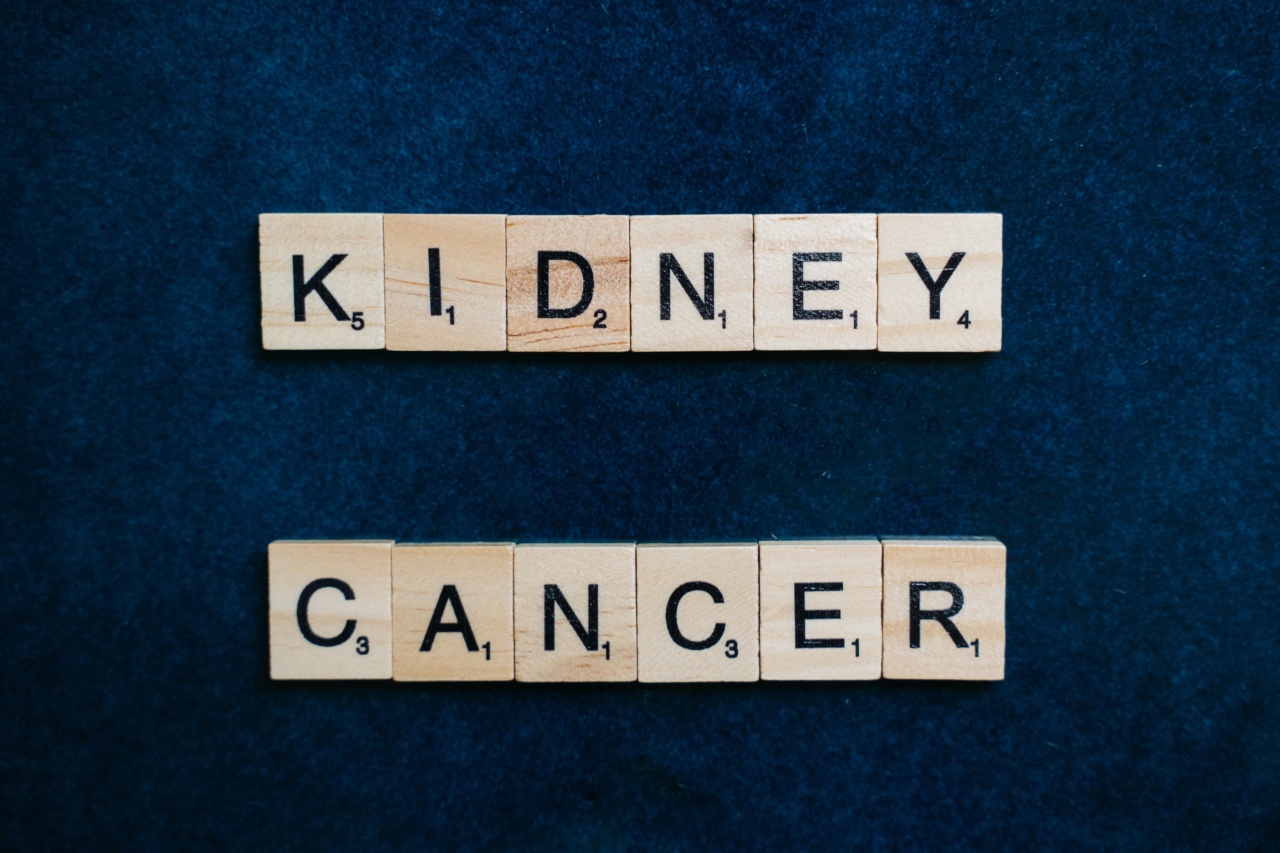Kidney and bladder cancer are some of the most common types of cancer. They are mostly caused by lifestyle and environmental factors.
Understanding the factors that increase the risk of kidney and bladder cancer is essential in taking preventative measures and mitigating the risk.
Lifestyle Factors
Lifestyle choices play a significant role in the development of kidney and bladder cancer. Here are some of the lifestyle factors that increase the risk of these cancers:.
Smoking
Smoking is one of the most significant risk factors for kidney and bladder cancer. The toxic chemicals in tobacco smoke damage the DNA in cells, leading to the development of cancer.
According to the National Cancer Institute, smokers are twice as likely to develop bladder cancer as non-smokers.
Obesity
Obesity is a risk factor for several types of cancer, including kidney and bladder cancer. People who are overweight or obese have a higher risk of developing these cancers compared to people with a healthy weight.
The exact reason why obesity increases the risk of cancer is not yet fully understood, but it is believed that excess body fat contributes to chronic inflammation, which can damage DNA and increase the risk of cancer.
Exposure to chemicals
Exposure to certain chemicals can increase the risk of kidney and bladder cancer. Chemicals like benzene, aromatic amines, and polycyclic aromatic hydrocarbons (PAH) are known to be carcinogenic.
People who work in industries that involve exposure to these chemicals, such as chemicals manufacturing and petrol refineries, have a higher risk of developing these cancers.
Environmental Factors
Environmental factors are also known to increase the risk of kidney and bladder cancer. Here are some of the environmental factors that can increase the risk:.
Exposure to radiation
Exposure to high levels of radiation is a significant risk factor for kidney and bladder cancer. People who work in industries that use radiation, such as nuclear power plants and X-ray technology, have a higher risk of developing these cancers.
People who have had radiation therapy for other medical conditions are also at higher risk.
Exposure to arsenic in drinking water
Arsenic is a naturally occurring chemical that is found in some groundwater. Exposure to arsenic in drinking water can increase the risk of kidney and bladder cancer.
People who live in areas where the groundwater is contaminated with arsenic are at higher risk of developing these cancers.
Chronic kidney disease
Chronic kidney disease is a condition where the kidneys gradually lose their function over time. People with chronic kidney disease have a higher risk of developing kidney cancer compared to people with healthy kidneys.
The exact reason why chronic kidney disease increases the risk of kidney cancer is not yet fully understood, but it is believed that the damage to the kidneys leads to abnormalities in cell growth and division, which can lead to cancer.
Age
Age is a significant risk factor for kidney and bladder cancer. The incidence of these cancers increases with age, with most cases being diagnosed in people over the age of 60.
This is due to the accumulation of DNA damage over time, which can eventually lead to cancer.
Conclusion
Kidney and bladder cancer are common types of cancer caused by lifestyle and environmental factors. Understanding the factors that increase the risk of these cancers is essential in taking preventative measures and mitigating the risk.
Quitting smoking, maintaining a healthy weight, and avoiding exposure to harmful chemicals are some strategies you can adopt to reduce the risk of these cancers.





























